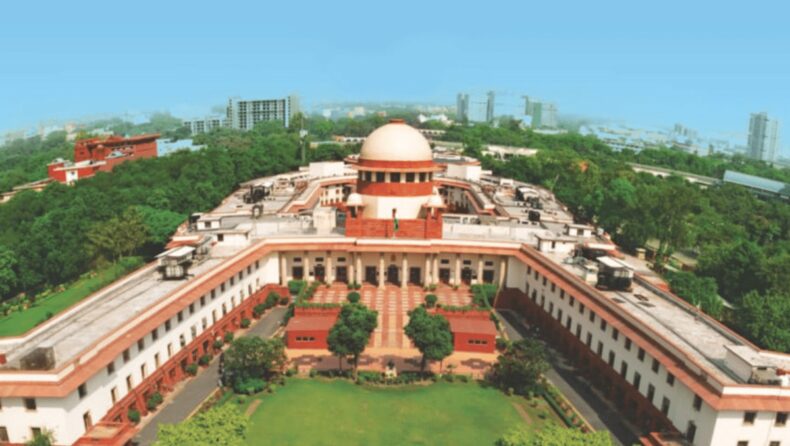Citizens have access to hearings held in Supreme Court regarding Uddhav Thackeray vs Eknath Shinde Shiv Sena rift case and the 10% reservation for the EWS.
On Tuesday, the Supreme Court began live streaming its Constitution bench sessions. They are accessible on the NIC Webcast YouTube channel.
This development occurs four years after the highest court accepted in principle the idea of live streaming cases of public interest.
On September 27, 2018, while presiding over a bench, the then-chief justice of India, Dipak Misra, issued a court decision on the live transmission or live streaming of important constitutional proceedings, stating that sunlight is the most effective disinfectant.
The official website for viewing the sessions is webcast.gov.in/scindia/.
Supreme Court will most likely switch to a specialized live-streaming platform over time
On Monday, UU Lalit, Chief Justice of India (CJI), said that the apex court will soon have its live streaming facility for all Constitutional bench sessions.
He announced while hearing a plea submitted by KN Govindacharya, a leader of the Bharatiya Janata Party, who argued that private sites such as YouTube should not be granted the copyright to stream Supreme Court hearings.
Attorney Virag Gupta informed the bench, which also comprised Justices S Ravindra Bhat and J B Pardiwala, that YouTube had asserted copyright over the live stream.
“These are the initial stages. Without a doubt, we will have our platforms… We will handle it (copyright issue) “announced the CJI.
Swapnil Tripathi’s judgment (2018)
The attorney referenced Swapnil Tripathi’s 2018 judgment in which it was determined that “the copyright over all material recorded and broadcast in this court shall vest exclusively with this court.”
He also referenced YouTube’s terms of service and stated that the copyright also belongs to this private platform.
Four years after Justice Misra’s historic declaration in 2018, the highest court decided unanimously at a recent full court meeting headed by the CJI to live-stream sessions of all constitution bench hearings beginning September 27.
Reports state that the Supreme Court may live stream events on YouTube and subsequently host them on its server. Proceedings can be accessed from any device, including smartphones, tablets, and PCs.
Live Stream Details – (received wide public viewership)
The Supreme Court live-streamed proceedings of a bench chaired by then-Chief Justice (now retired) N V Ramana for the first time since its establishment on August 26 using a streaming platform. The ceremony was formal because Justice Ramana was retiring on that day.
Several key matters will be reviewed by the five-judge constitution benches of the Supreme Court. These include challenges to the constitutional validity of the 103rd constitution amendment granting a 10% quota to the Economically Weak Section (EWS), the Uddhav Thackeray vs. Eknath Shinde Shiv Sena dispute case, and the challenge to the legality of the All-India Bar Examination.
Tuesday’s live streaming of the Supreme Court’s three Constitution Bench hearings attracted a large audience on the first day. According to YouTube statistics, the three videos had received over 8 lakh views as of 7:45 p.m.
Numerous social media users expressed their satisfaction and excitement at attending their first Supreme Court sessions.
“Statistics indicate that more than eight lakh people viewed the hearing before the three Constitution Benches. A historic moment,” the court’s Public Relations Office stated.
Justice DY Chandrachud, who is the chairperson of the court’s e-committee and the driving force behind the live streaming project, began the session in his courtroom by stating, “we are virtual”.
The technical support staff of the court carefully monitored the live stream. The entire day of the broadcast aired without a single interruption.
On September 20th, the apex judge’s Full Court met and agreed to start streaming Constitution Bench sessions on September 27th.
After the break for Dussehra, the Constitution benches of the court will hear petitions including challenges to the Citizenship Amendment Act, the government’s 2016 demonetization, the abrogation of Article 370 in 2019, and a challenge to WhatsApp’s privacy policy.
Read More: Supreme Court: Citizenship Act Can an applicant under Section 9(2) be deported without being heard?













